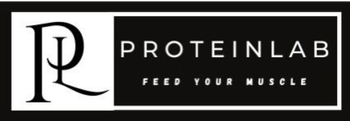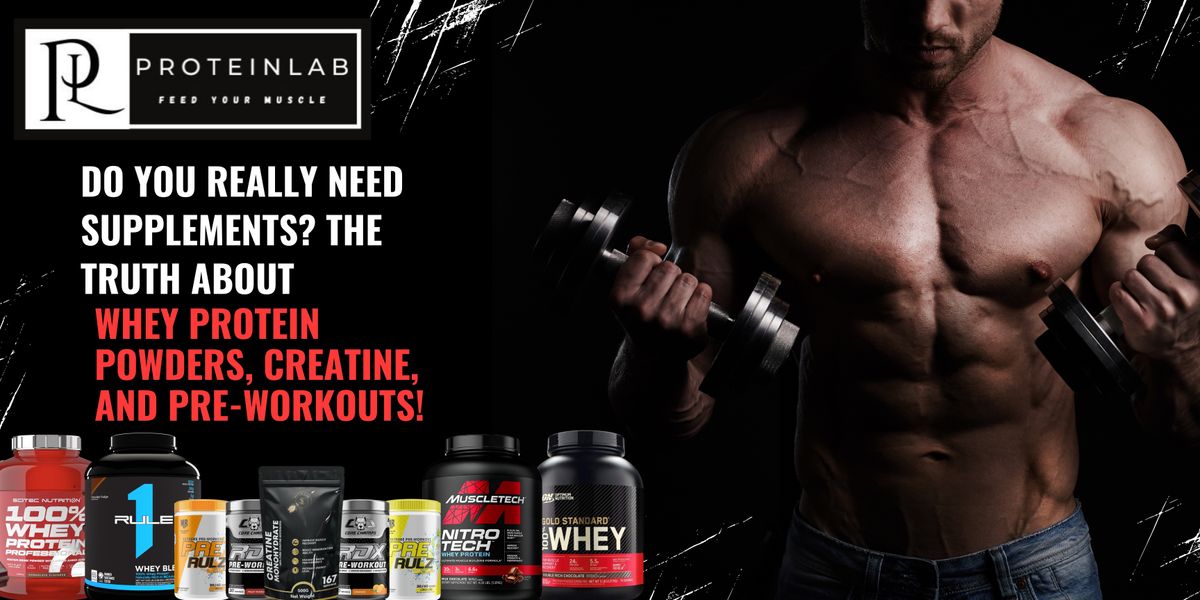
Do You Really Need Supplements? The Truth About Whey Protein Powders, Creatine, and Pre-Workouts
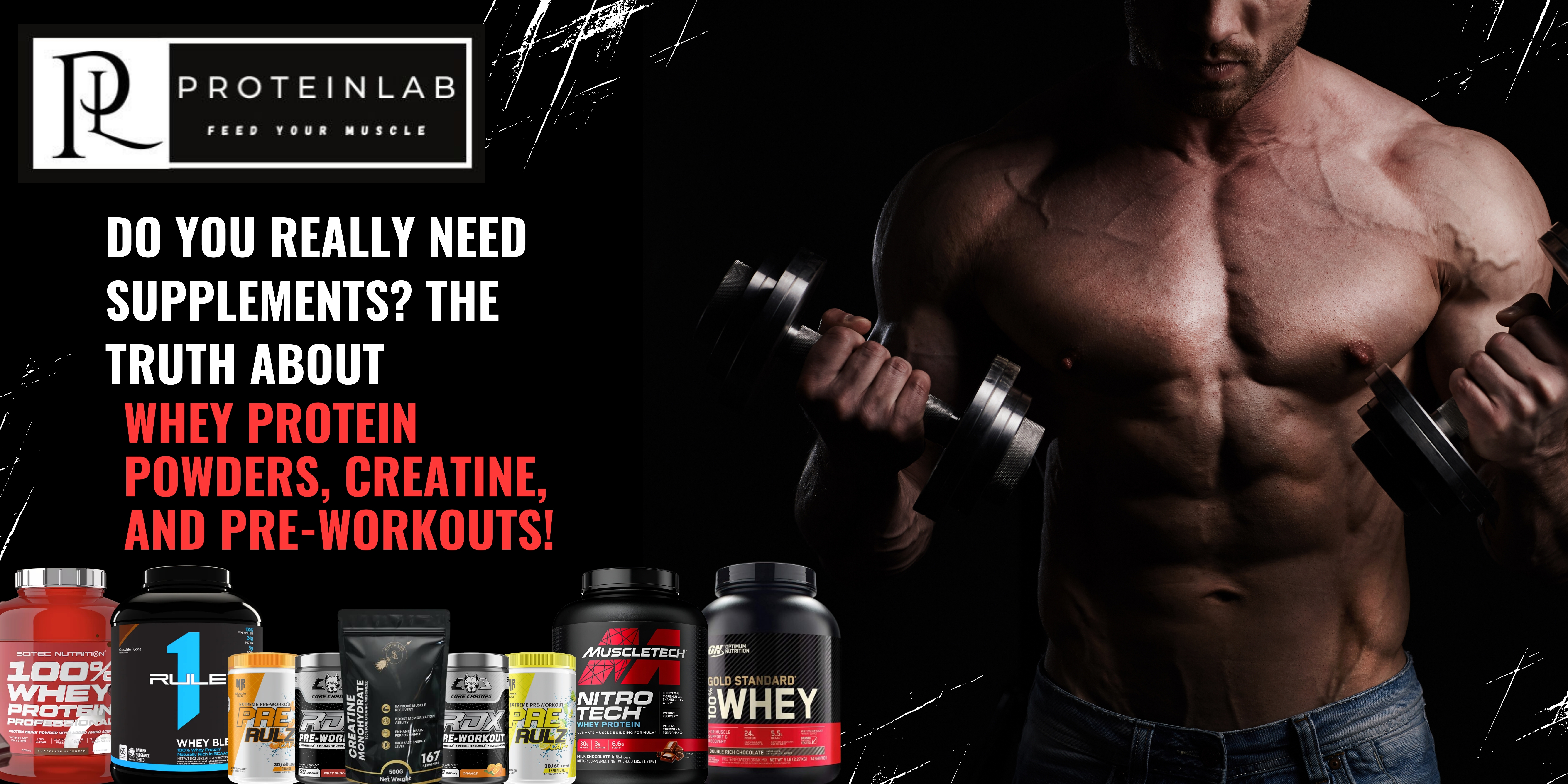
The fitness and bodybuilding tapestry has exploded into varied arrays in recent years, almost unwilling to fit the growing list of supplements. Limitless in numbers really: whey protein powders, the one that allegedly fuels muscle growth; pre-workouts that supply those moments of extra power, and creatine that is a strength and endurance enhancer. The more experienced ones with years of existence under the gym have all seen the appeal of such products, and even the newbies starting to see the transformative quality of exercising find them hard to ignore.
These supplements with varying loudness declare that they can bring faster gains, higher performance, and quicker recovery to anybody willing to pop the pills and gulp down the shakes from all walks of life. But with the trend in the background created by their marketing buzz, an interesting question hangs in the air: Do I really need supplements to reach my fitness goals? Are these much-advertised things really essential for an actual workout program, or are they just yet another marketing gimmick that seduces, entices, and persuades?
Let us go on a rollercoaster ride while we delve into all the mysteries surrounding whey protein powders, the allure of creatine, and the zesty appeal of pre-workouts. We will try to find out what really deserves all that hype and what may be mere smoke and mirrors in the clouded world of fitness supplements. I greatly encourage you all to join us as we embark on this journey in search of truths, studies, and the craze that envelops these popular products.
The Supplement Industry: A Billion-Dollar Industry or a Fitness Fad?
Supplement industries have exploded in the past few years into a multi-billion-dollar market, and there lie a few health enthusiasts and fitness seekers. The illimitable array of bright colors, enticing tubs, and creamy shakes--each one practically shouting promises of performing better in their activities, getting rid of fat, or fast muscle building just has the power to bewilder you in the supplement aisle of any grocery or health store. Variety is the name of the game here, and it is quite easy to get lost amongst those numerous choices. Yet, despite flashy advertisements with charming athletes and celebrities, the million-dollar question remains: Do you really need supplements to make meaningful progress in your fitness journey?
The short answer to that would be: It really depends on several factors!
While fitness supplements aren’t inherently bad, casting them in a negative light, we must recognize that some of them can actually provide incredible benefits when utilized correctly and paired with a balanced diet.
Whey Protein Powders: Are They Essential for Muscle Growth?
Let’s start with the big one: whey protein powders. If you ever set foot inside a gym, perhaps you saw people chugging down shakes after a workout or did hear the phrase "muscle fuel" being thrown around. But really, does one need any protein shake, or is it all hype?
What Does Whey Protein Powder Do?
One macronutrient that is key for muscle repair and growth is protein. Protein helps in repairing the minor tears in muscle fibers after these muscles have been stressed while working out; the eventual effect is an increase in muscle mass over time. Hence, whey protein powders are a must for someone wanting to gain muscle or improve their recovery process.
Do You Need Whey Protein Powder?
Here’s the thing: you are not supposed to need whey protein powders if you have an adequate amount of protein in your diet. Protein-rich foods may include chicken, fish, beans, eggs, tofu, and dairy products. For the majority of people, a well-balanced diet will provide enough protein for daily needs.
However, if one has a hectic routine, is unable to reach his or her protein goals, or simply finds it easier to down a shake, whey protein powders can be considered an aid. Mass gainer powders contain sugars and other artificial additives that have to be avoided at all costs; all-natural, pure whey protein powders would be best.
The Verdict?
Whey protein powder is not magic but serves as an occasional solution if protein intake needs to be spiked on the fly. In general, if you are achieving your total protein via whole foods, then you probably do not need whey protein powders.
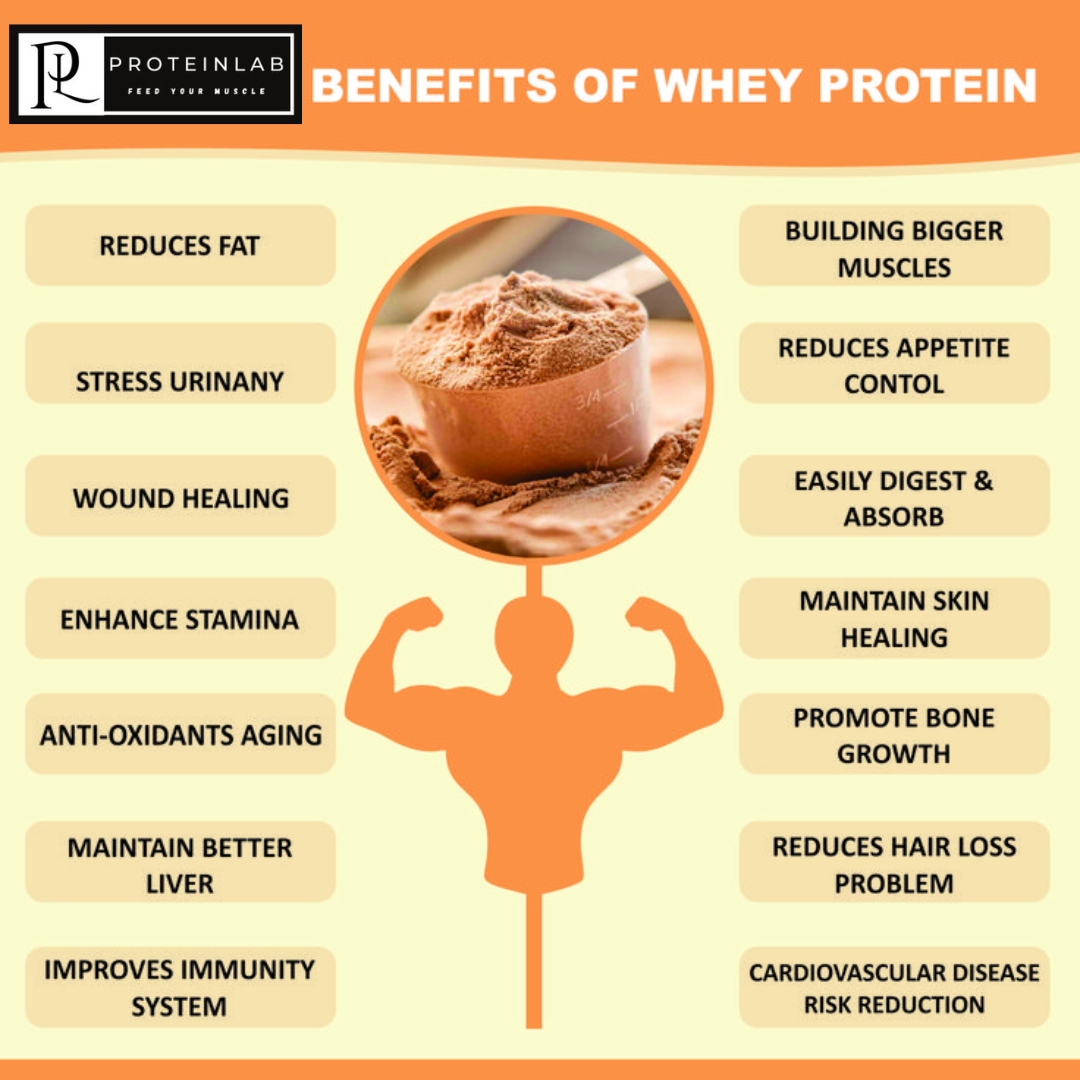
Creatine: The Underrated Superstar
Next up: Creatine. This one is often misunderstood, and wild myths and misconceptions are spread about it. Some people think it's a steroid (it's not), whereas others believe it is only for bodybuilders.
What Does Creatine Do?
Creatine is a natural compound that occurs in trace amounts in foods such as red meat and fish. It is stored in the muscles and used as a quick source of energy when high-intensity activities like sprinting or heavy lifting take place. Taking creatine supplements increases the levels stored in the body, thereby enhancing performance in explosive activities.
Do You Need Creatine?
Creatine has undergone extensive research and has emerged as one of the most proven supplements to increase strength, power, and muscle mass. Creatine can noticeably enhance your performance if you undertake strenuous, high-intensity exercises, such as weightlifting or sprinting, during endurance activities-like long-distance running or cycling, you might not feel the same effects. But if your workout routine focuses more on endurance activities, like long-distance running or cycling, you may not notice the same benefits.
The Verdict
Creatine is one of the few supplements that are actually proven to work. Creatine is something to seriously consider if you weight train, do HIIT, or sprint.
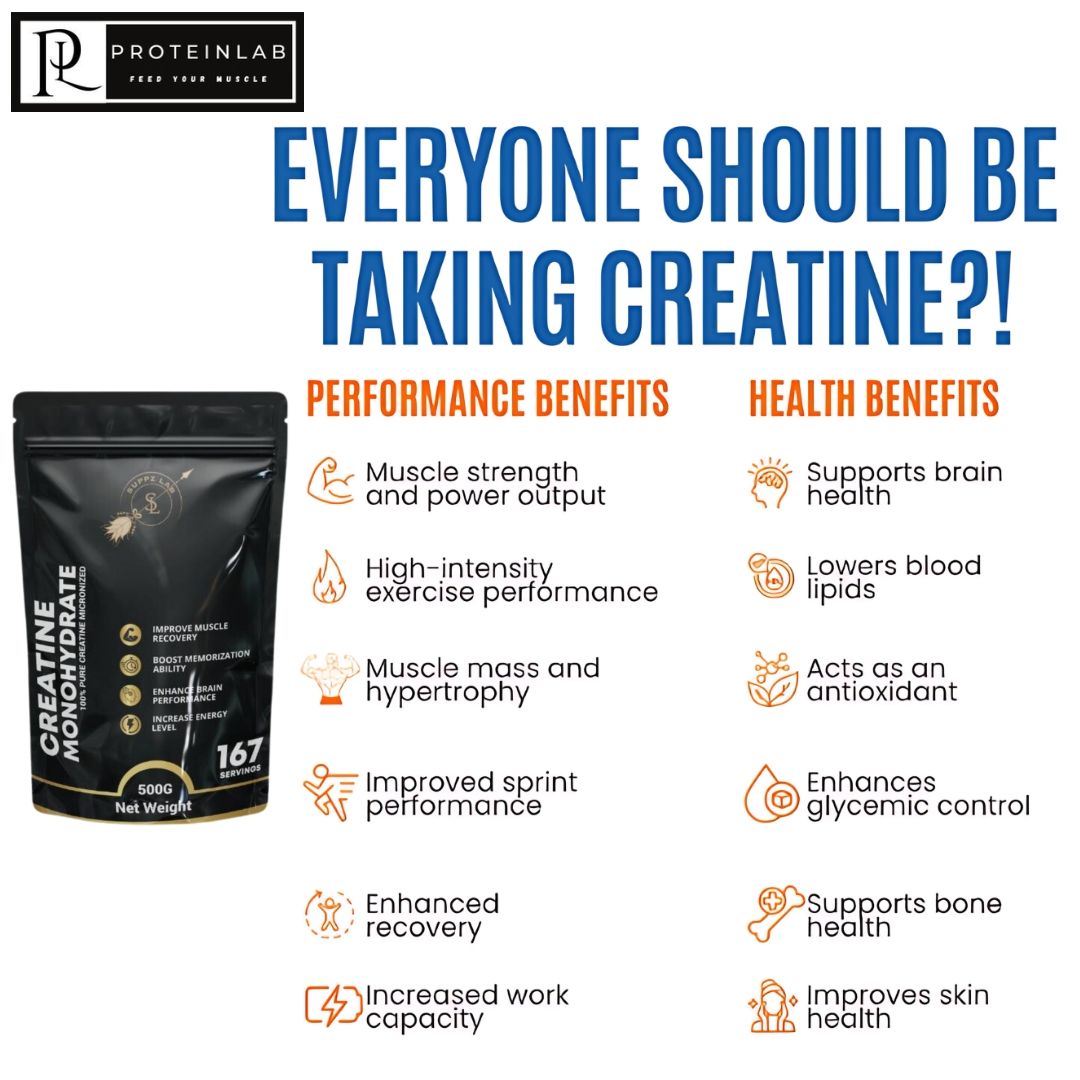
Pre-Workouts: A Boost or a Bust?
So now, let's talk about the pre-workout supplement. Seemingly, one works with the pre-workout to provide a surge of energy, focus, and endurance just before an athlete goes out to the gym. They claim to boost your workouts with caffeine, beta-alanine, and nitric oxide boosters. Are they really necessary?
What Do Pre-Workouts Do?
A pre-workout supplement is made to provide another edge in your workout by increasing energy, focus, and endurance. Common ingredients present in most pre-workout supplements include caffeine, which helps in alertness, so it has a positive effect on performance through the stimulation of the central nervous system. Beta-alanine, another common thing that you find in pre-workout supplements, and which shields the lactic acid buildup in muscles as well as delays the fatigue during an awesome-intense workout.
Do You Need Pre-Workouts?
They may keep you up, but pre-workout supplements are not the cornerstone for most. With a good night’s sleep, a nutritious meal, and an eager mind, perhaps no extra stimulation is required for that workout. However, if you feel draggy and need some extra motivation to get through a rigorous session, that pre-workout supplement may well be your benefactor.
That said, we weren't saying that nutritional supplements generally come with long lists of potential side effects like jitters, crashes after the energy wears off, and gastrointestinal upsets, along with a lot of unnecessary artificial flavors, sugars, and other fillers that have to be there. If you could get a jump in your energy from a cup of coffee or a good night's rest, consider skipping the pre-workout.
The Verdict
The better the pre-workout supplement, the better your exercise sessions should be if you're feeling very sluggish or just needing that extra push. However, the truth is: they may not be needed when you already get enough sleep and eat right.
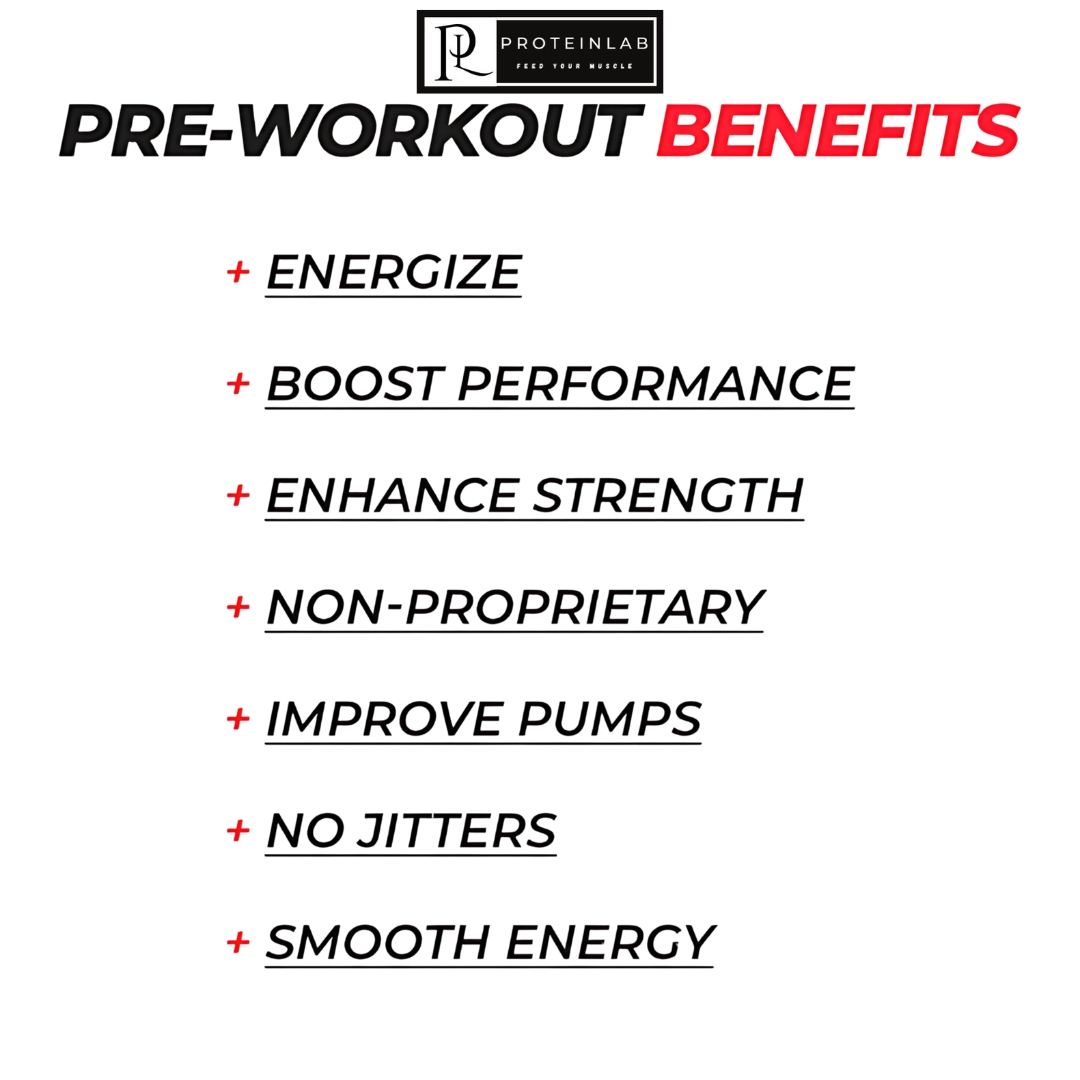
Whole Foods: The Foundation of Your Diet
Supplements are exactly what they sound like: they’re meant to supplement your diet, not replace it. The bulk of your nutrition should come from whole foods that provide a range of vitamins, minerals, and macronutrients that supplements simply can’t match. No amount of whey protein powders or creatine, or pre-workouts will replace the benefits of a balanced, nutrient-dense diet.
When to Consider Supplements
If you’re struggling to meet your nutritional needs through food alone, or if you’re a vegan, vegetarian, or have certain dietary restrictions, supplements can help fill the gaps. They’re also helpful if you’re trying to optimize performance, build muscle, or improve recovery.
Final Thoughts: Should You Add Supplements to Your Routine?
Supplements like whey protein powders, creatine, and pre-workouts can be valuable tools for certain fitness goals. But they’re not the magic bullet many make them out to be. Ultimately, the foundation of your fitness journey should always be a well-balanced diet, consistency in training, and good recovery practices.
If you're unsure which supplements to take, or if you even need them, start by focusing on your diet first. After that, consider the supplements that best align with your goals and lifestyle. And remember: supplements can enhance your results, but they’ll never replace hard work and smart nutrition.
Key Takeaways
Whey protein powder is convenient but not essential if you’re already meeting your protein needs through food.
Creatine is one of the most effective supplements for strength and power-based activities.
Pre-workouts can help give you energy for tough workouts, but they’re not necessary for everyone.
Focus on a balanced diet first; supplements should fill in the gaps, not make up for poor nutrition.
Always do your research and choose supplements based on your goals and individual needs.
So, the next time you find yourself staring at a supplement aisle, remember: Supplements can be helpful, but they’re not a substitute for hard work, solid nutrition, and consistency. The truth about whey protein powders, creatine, and pre-workouts is simple: they’re tools that can enhance your fitness journey, but you’re the one who has to do the work.
Be safe and rest assured, you are getting 100% authentic products at the lowest price when you purchase at Proteinlab Malaysia.
You can also like our Facebook page for more promotional news at:
Or you can also follow our Instagram for more nutrition tips at:
